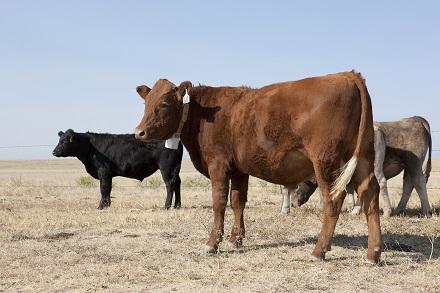
A Holistic Approach to Cattle Production May Mean Better Burgers
Scientists have found that integrating ecological, economic, and social principles is one of the most effective tools to help farming systems move toward greater resilience.
According to Mark Boggess, center director for the U.S. Meat Animal Research Center (USMARC) in Clay Center, NE, improving facets of animal production that deal with genetics, nutrition, health, and reproduction is a key part of a “systems-based approach.”
“Systems biology focuses on the scope and scale of a specific production system from a holistic perspective,” he said. “These systems… focus on the relationships and interactions between genetics (G), the local environment (E), the management system (M), and relevant socio-economic effects (S) – or ‘GEMS.’”
In other words, systems biology looks at how all the different factors interact. For example, optimal animal genetics must match the local environment; management systems must be appropriate to maximize efficiency; and all meat animal systems must address healthfulness, animal care, and wellbeing.
Boggess noted that farmers and ranchers can implement many of USMARC’s findings immediately. Examples include genetic tests for beef industry producers, including one for detecting bovine congenital heart failure.
Read Researchers Find Hidden ‘GEMS’ to Meat Production to learn more.
You May Also Like


